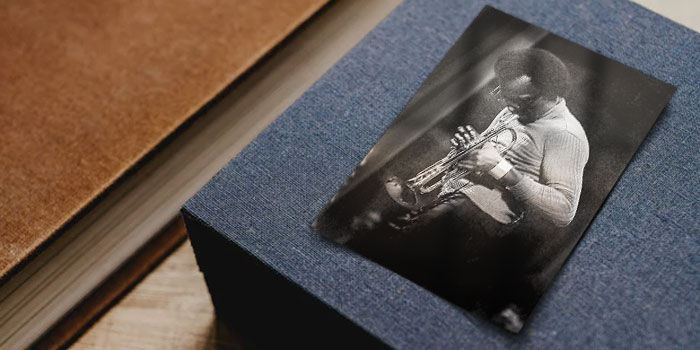
Listening to Miles Davis’s “Kind of Blue” is a lesson in what Jazz is and should always be about. This iconic album has stood the test of time and is arguably one of the best jazz albums of all time. If someone is new to Jazz and just starting on the journey, this album is a perfect launch ramp. What Miles Davis created on “Kind of Blue” is a masterpiece.
Recorded at the beginning of 1959, the album was remarkably cheap to record. Davis was advanced a few thousand dollars and union-scale pay for his six bandmates. The ensemble Davis brought together in “Kind of Blue” is of the highest caliber. All legends in their own right, tenor saxophonist John Coltrane, alto saxophonist Julian “Cannonball” Adderley, pianists Bill Evans and Wynton Kelly, bassist Paul Chambers, and drummer Jimmy Cobb. Davis had a rough sketch of how he wanted the melodies and chords to progress on paper. Davis kept things loosely planned for a reason. He tried to keep the music in the moment and spontaneous, not overly expected. Nine hours of studio time later this unrehearsed recording session became one of the greatest jazz albums ever.
The album plays like a movie with the mood of the music telling the story. Davis’s trumpet solo work on the album is the best in Jazz. It has been memorized by every musician aspiring to be one of the greats. “Kind of Blue” was released in August of 1959 to instant success. Audiences and critics agreed that Miles Davis had created something amazing. Each song on the album helps to build the overall brilliance of this album further.
“Kind of Blue” was recorded sixty years ago and still comes across as new, updated, and relevant. Few musicians can create music with such vast appeal as Miles Davis. He was gifted at keeping his sound fresh, modern, and exciting. Listening to any of his albums puts you there in the moment. Miles Davis’s “Kind of Blue” is still the 10th best selling record or all-time and still sells at least 5000 copies per week Miles Davis’s “Kind of Blue” was inducted into the Grammy Hall Of Fame in 1992. From his start in the bebop revolution in the late 1940s, playing with Charlie Parker to his final studio album “Doo-Bop” in 1992, Miles Davis changed Jazz music forever.
By: W Michael Brigger






